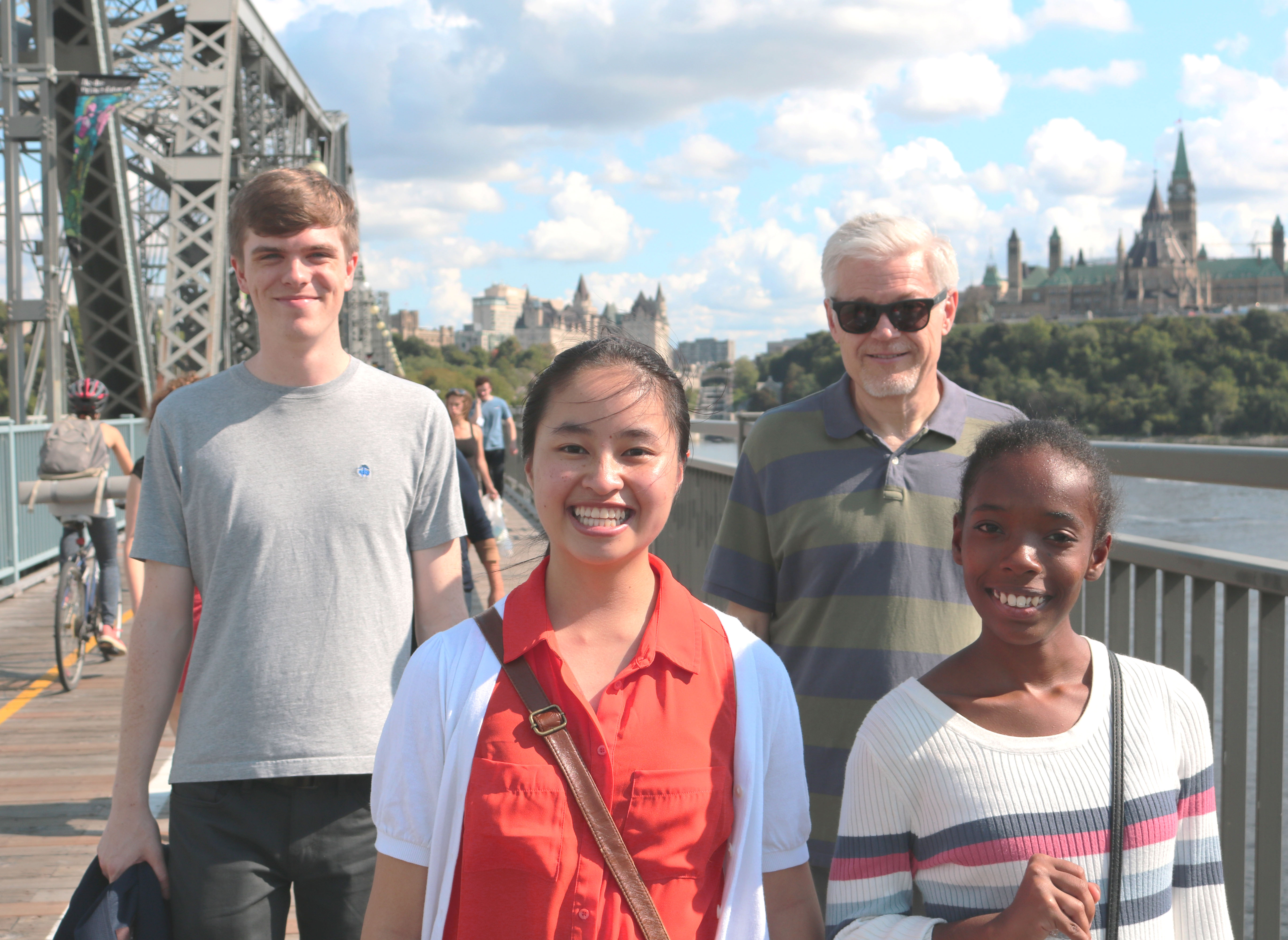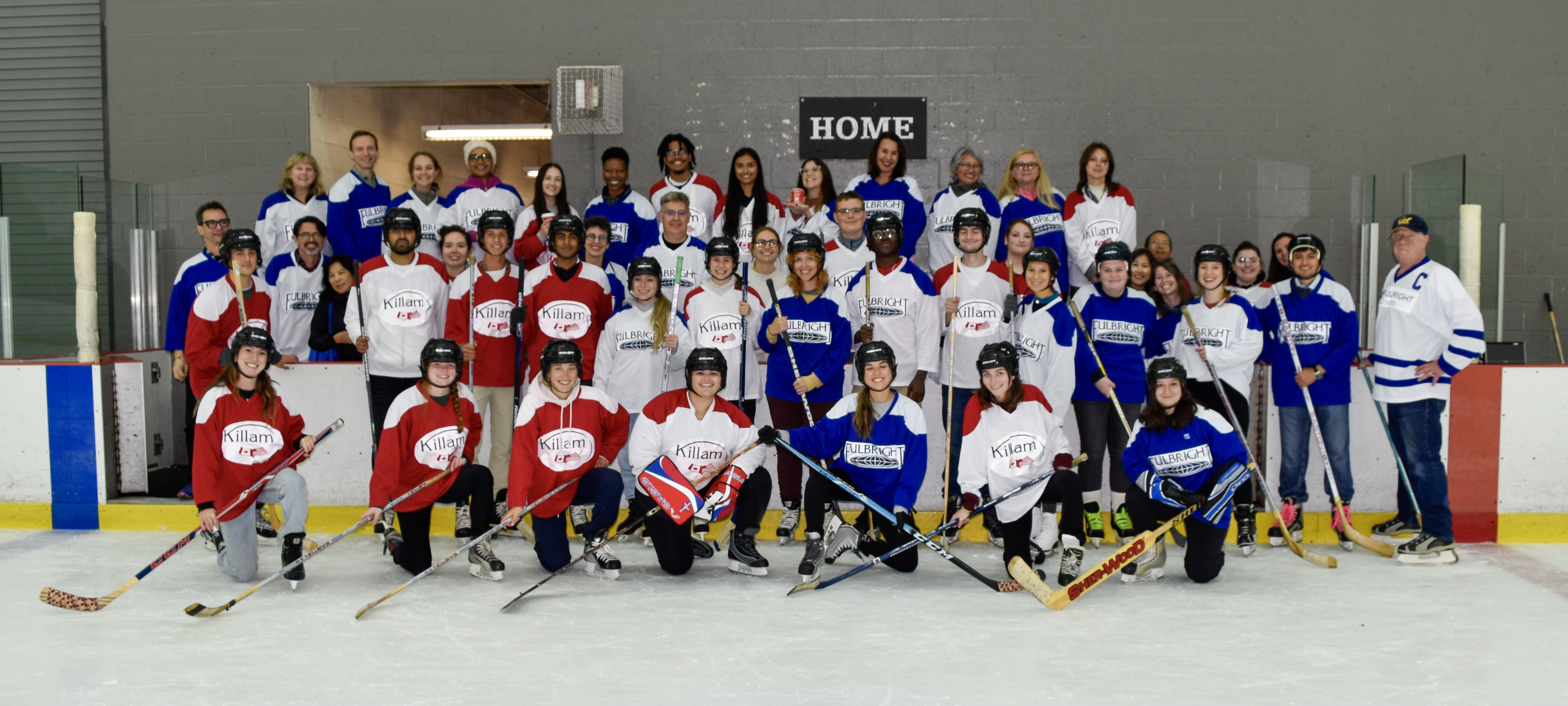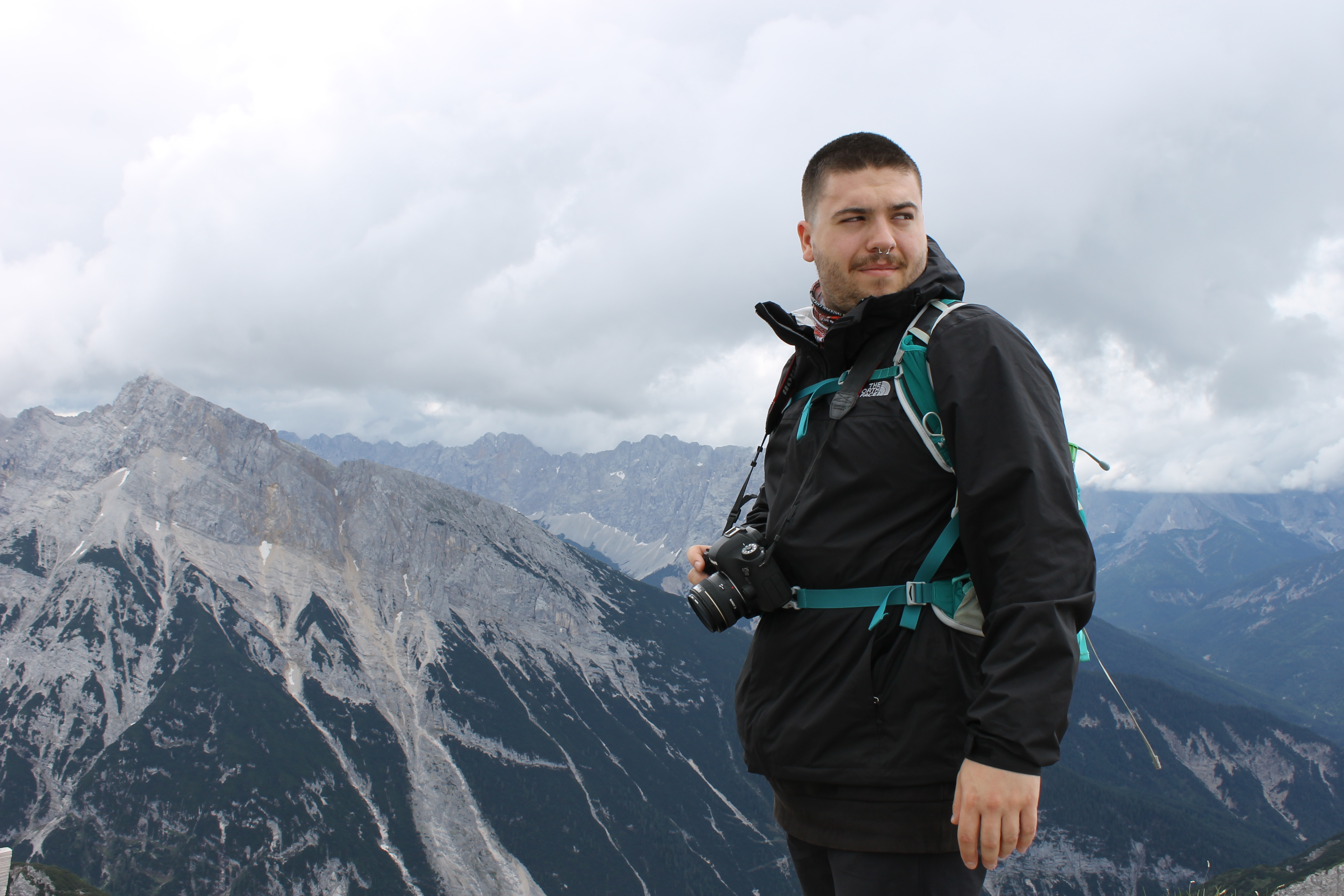Canada
9 Fulbright Canada Research Award
Accepted Degree Levels
|
Grant PeriodFall StartGrant Length8 Months |
Award Type
Award Profile
Fulbright Canada awards offer a unique opportunity for American students and independent researchers to explore a wide range of scholarly issues, including important contemporary issues that are relevant to Canada, the United States, and to the relationship between our two countries.
The competition is officially open to all fields and Fulbright Canada is especially keen to support students in the areas of:
- Arctic studies
- Artificial intelligence
- Economics, business, and finance
- Canadian-American relations
- Energy security and environmental studies
- Entrepreneurship (See Special Opportunities)
- Indigenous studies (See Special Opportunities)
- Law, public policy, and political science
- Public health
- Public safety
- Pure and applied sciences
- Shared priorities of our two governments
All applicants are required to demonstrate the relevance of their projects to Fulbright Canada's mandate, which is to enhance mutual understanding between our two countries.
Grant Length
Grant Period
Grants typically coincide with the academic year (September to April).
Shorter grant periods (6 months minimum) may be considered on an exceptional basis.
Orientation
Fall Orientation is an annual event which brings the new cohort of U.S. Fulbright Students and Fulbright Scholars to Canada together for a program of professional and personal development in Canada’s national capital, Ottawa, Ontario.
Candidate Profile
American applicants can be either:
- Students enrolled in a graduate program at a U.S. institution and wish to conduct research in Canada that will support their U.S. degree (MA, or Ph.D.), OR
- Researchers who have completed an undergraduate degree or a master’s degree and wish to pursue independent research in Canada.
What is life like for Fulbrighters in the host country?
Applicants are expected to research their host country. Application materials should indicate a clear commitment to the host country community and a description of how you will engage with it.
Canada is home to one of the most highly educated populations in the world. Canadian universities, institutes, and internationally renowned think tanks support innovative and collaborative research. They are typically situated in vibrant multicultural cities, in proximity to Canada’s various natural landscapes – making for an extraordinary professional and cultural experience. While Canada and the United States share a continent, deeply-held core values, and numerous points of collaboration, the two countries have distinct historical, cultural, and political realities.
Please visit the Universities Canada website for more information about Canada’s higher educational institutions.
You could spend a lifetime exploring Canada’s cities and towns, national parks, lakes, ocean shores, and mountains. Whether you’re looking to stroll along a beach in British Columbia, learn more about Francophone culture, hike in the Rocky Mountains at Banff National Park, or visit Indigenous heritage and cultural centres, there is an opportunity to embrace Canada for all it has to offer!
During your grant period, you will get to know Canada—the people, languages, culture, food, climate, and so much more. You’ll quickly learn that Canada offers you a safe and secure place to live, work and travel. Canada consistently ranks among the top countries in the world for quality of life.
Canada is a utopia for anyone looking to get active in the great outdoors. Due to the unique climate that each season brings and its geographic variety, you’ll have the perfect setting for almost any sport, exercise, or activity you may want:
- In the summer, you can go boating on one of the many lakes, swim in the ocean, or play beach volleyball. It’s also a great season to be a tourist in Canada by exploring one of the many national parks, visiting local beaches, dining out on a restaurant patio soaking up the sun, or enjoying a bonfire with friends.
- During the fall, you’ll love exploring the countryside to see the splendor of the autumn leaves, hiking up a mountain or through a park on a crisp day and generally enjoying the outdoors with your friends. Fall is also a great time to explore Canada’s vibrant cities and historic towns.
- Once winter comes, it’s time to grab your snow gear and join in some great Canadian fun! You can learn to ski or snowshoe, build a snowman, have a snowball fight with your friends, or simply enjoy the peaceful sound of walking through the quiet winter woods.
- Spring is a time for renewal in Canada, as the birds return from the south and flowers bloom in the gardens. It’s also “sugaring off” season, where you’ll discover how sap is collected and boiled to create 70% of the world’s maple syrup. The best part? Eating maple taffy poured hot on snow.


The Canadians you meet will impress you all year long with their warmth. Enjoy this opportunity to get to know Canadians and introduce your culture.
Multiculturalism is fundamental to Canadian identity. Not only does Canada have two official languages (English and French), but Canadian culture also includes people and cultures from around the world. Canadians have a strong sense of justice and care about ensuring people’s rights are upheld in all facets of their lives. A commitment to mutual understanding makes Canada a sought-after destination for international students.
Eligibility
3 Months
Bachelor’s degree must be conferred prior to taking up a grant.
Applicants who will have received a Ph.D. by December 31, 2026, should apply to the Fulbright Scholar Program.
Degree Level of Applicant
- Bachelor's
- Master's
- Doctoral
Special Application Instructions
Fulbright Canada is not involved in host institution affiliations. Candidates are responsible for submitting a letter of invitation from their host institution(s) as part of their Fulbright application.
Foreign Language Evaluation (FLE) Form
If required, submission of the Foreign Language Evaluation (FLE) form is mandatory, even if you have advanced skills or are a native speaker of the language. Failure to submit the required FLE form may impact your eligibility.
If conducting research at a francophone institution, French language ability commensurate with the requirements of the project and/or the requirements of the institution. Foreign Language Evaluation should be by a college level French language instructor. For further information, please contact Fulbright Canada (info@fulbright.ca) directly.
Fulbright Proposal Types
Yes
No
Affiliation
Affiliation may be with any university, research center, think tank, or government agency in Canada.
For applicants seeking affiliations with research centers, research institutes, think tanks, or government agencies, preference will be given to those with a supporting affiliation at a university in the same region.
Official government of Canada website for international students looking to study or research in Canada: www.educanada.ca
To search for Canadian universities and academic programs, please visit: www.universitystudy.ca
Applicants are responsible for obtaining a letter of invitation from their intended host institution and must adhere to all host institution regulations pertaining to visiting students/researchers. Applicants are encouraged to establish an affiliation with the intended host institution at an early stage and ideally have a fallback position.
Affiliation Fees/Tuition
US$25,000 fixed sum for one eight-month academic year (September to April). The award is meant to help offset fees, cost of living, and related expenses.
A number of Canadian universities offer competitive graduate awards that can supplement the Fulbright Canada award.
Award Benefits
- A stipend broadly based on the cost of living in the host country. These funds may be used by the grantee to support housing, meals, and incidental costs during the grant period.
- International travel benefits
- Accident & sickness health benefits
- 24/7 mental health support line for urgent and non-urgent situations
- 12 months of non-competitive eligibility (NCE) hiring status within the federal government
Stipend Amount
This is an estimated amount and is subject to change. The financial terms of the grant will be confirmed in the grant document issued after selection.
Important: Fulbright Canada does not offer a monthly stipend. Awardees receive a fixed, lump sum for one eight-month academic year (September to April) of USD 25,000. The award is meant to help offset fees, cost of living, and related expenses.
Estimated Cost of Living
Consider using cost of living comparison websites to gain a better understanding of the potential costs in your host country.
Canada has one of the strongest economies in the world and is consistently ranked as having a very high quality of life. However, it is not an inexpensive place to live. The average cost of living in Canada is USD 2,200 per month. Note that Toronto is one of the most expensive cities in Canada (USD 4,000), while the cost of living in Montreal is among the lowest for major cities in Canada (USD 1,600).
Depending on where you live in Canada, the cost of living differs slightly. For a snapshot of the various regions, please see the following links to select Canadian universities that include the estimated cost of living in that area.
Pacific Region University of British Columbia
Prairie Provinces University of Alberta
Central Canada Ontario: University of Toronto, Quebec: McGill University
Atlantic Region Memorial University of Newfoundland
Additional Universities are listed at: Universities Canada.
For additional information about how much it will cost you to live in Canada, please see the Government of Canada webpage.
Dependents
Housing Arrangements
Grantees are responsible for making their own housing arrangements and are encouraged to contact their host institution’s office for international students for assistance in securing housing. Many Canadian universities have off-campus housing services for students.
Special Opportunities
Fulbright Canada Student Entrepreneurship Award: This award is an excellent opportunity for American graduate students to combine academic pursuits with entrepreneurial endeavours. The award aims to equip aspiring student entrepreneurs with the necessary tools and knowledge to succeed, fostering positive social and economic change through innovative solutions. Awardees will receive entrepreneurial guidance from Startup Science, gain entry to an accelerator program offered by Alacrity Canada, tap into the expertise and networks of venture capitalists, and gain practical application to commercialize entrepreneurial projects. Awards may be held at any university, research center, research institute, think tank, or government agency in Canada.
To be considered, include a paragraph in your Study/Research Objectives addressing the following:
- Explain the significance and relevance of your project to the field of entrepreneurship.
- How do you expect the Entrepreneurship Initiative will impact you personally and professionally?
- How do you plan to collaborate with institutions, organizations, or entrepreneurs during your residency?
- What resources and support you will need from the FCEI to successfully complete your project?
For more information, please visit our website at https://www.fulbright.ca/programs/entrepreneurship-initiative/american-student.
Fulbright Canada - Honouring Nations Student Award: This award supports American graduate students, prospective graduate students, or promising young professionals. The award is dedicated to advancing research that focuses on critical Indigenous issues and fostering social connectedness and belonging within Indigenous communities. Awardees will gain access to the Samuel Center for Social Connectedness and its Belonging Lab, providing valuable academic and practical resources. Awards may be held at any university, research center, research institute, think tank, or government agency in Canada.
To be considered, include a paragraph in your Study/Research Objectives answering the following questions:
- Why is your research significant and relevant, and what potential social impact does it aim to achieve?
- How does your research foster a sense of community, belonging, and social connectedness?
- How will access to the resources and support from the Samuel Center for Social Connectedness and its Belonging Lab enhance your research and amplify its impact?
For more information, please visit our website at https://www.fulbright.ca/programs/american-students/hnc-awards.
Fulbright/John R. Oishei Award: This award is available for an American student who is from Buffalo, NY, permanently residing in the greater Buffalo area, or studying in Buffalo. Applicants interested in pursuing their studies in the fields of business, health care, education, and cultural, social or civic needs of the community are eligible. The Foundation gives priority to innovative, creative, and time-limited programs or projects. All qualified applicants will be considered; special notation on the application is not required.
Enrichment Opportunities: An integral part of the program includes Fulbright Canada enrichment opportunities, which are available to Fulbright Canada alumni on a competitive basis. Of note is the Mobility Program, which includes Fall Orientation in the nation's capital, and the Professional Development Program which encourages travel to a different city or region of Canada during your residential exchange. Other opportunities, such as the Community Action Program and the Community Leadership Program are also available.
Fulbright Program Management Contact
Fulbright Commission/U.S. Embassy Website
Fulbright Commission/U.S. Embassy Contact
Additional Online Resources
Conversations with Fulbright Canada Alumni: https://www.fulbright.ca/2021/12/introducing-in-conversation-with-a-fulbright-canada-podcast

